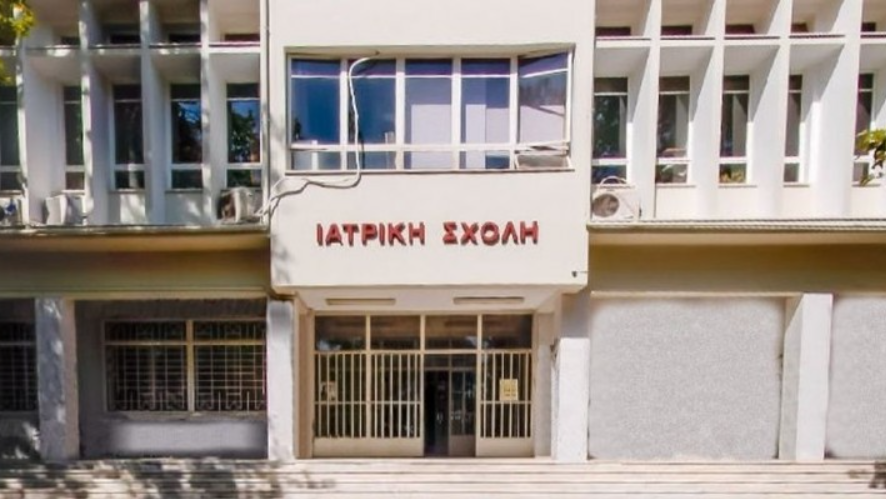Two of the last existing tuition-free Master’s programs in the Medical School of the Aristotle University of Thessaloniki – Public Health and Health Policy, and Primary Health Care – continue to face serious obstacles. Their faculty is constantly being pressured to cancel the courses altogether or introduce tuition fees to sustain them financially.
Most recently, professors and students found themselves locked out of classrooms they were regularly using for their courses. The doors were locked ahead of their lectures, and the locks had been replaced without prior notification. Because of this, the course had to be temporarily suspended.
According to early reports, the locks were changed because the dean of the Medical School decided that newly renovated classrooms were to be used by students enrolled in courses with tuition. Apparently, the dean said this at the time because the funds collected through tuition were used to renovate the classrooms, and non-paying students should not use them as they did not contribute to this sort of fundraising.
The Faculty Union of the Aristotle University of Thessaloniki (ESDEP) denounced the events shortly after they happened. After their statements, the dean changed his approach, arguing that access to the rooms was banned on grounds of health and biosafety rather than financial ones. Still, the fact remains that renovated lecture theaters are now used only by programs that require tuition fees, selectively excluding only the free-of-any charge programs.
Aristotle University is a public university, operating in a country whose constitution guarantees higher education free of charge for everyone. The classrooms which are now out of reach for the non-tuition paying students have been used for teaching purposes for more than 30 years. The decision to exclude these programs from the lecture theaters restricts access to public infrastructure for students that are not able to cover tuition fees, and for faculty members who strongly believe that education is a public good and not a commodity.
This continues a decades-long trend of commodification of health and medical education. The same trend can also be tracked through the rapid expansion of Masters’ programs that require high tuition fees. This trend has had widespread implications globally, including in Greece, as prospective students are more often than not selected based on their capacity to cover the tuition fees rather than their merit.
The programs in Public Health, Health Policy, and Primary Health Care remain among the few high-education programs that have resisted this trend. Not only do they guarantee access to students from different backgrounds, but they are also a space where future health workers learn about the political aspects of health, social determinants of health, and the importance of public health care. Their targeting therefore not only aims to restrict access to people from different class profiles, but also to reshape the landscape of public health policy in Greece in the long term.
People’s Health Dispatch is a fortnightly bulletin published by the People’s Health Movement and Peoples Dispatch. For more articles and to subscribe to People’s Health Dispatch, click here.





